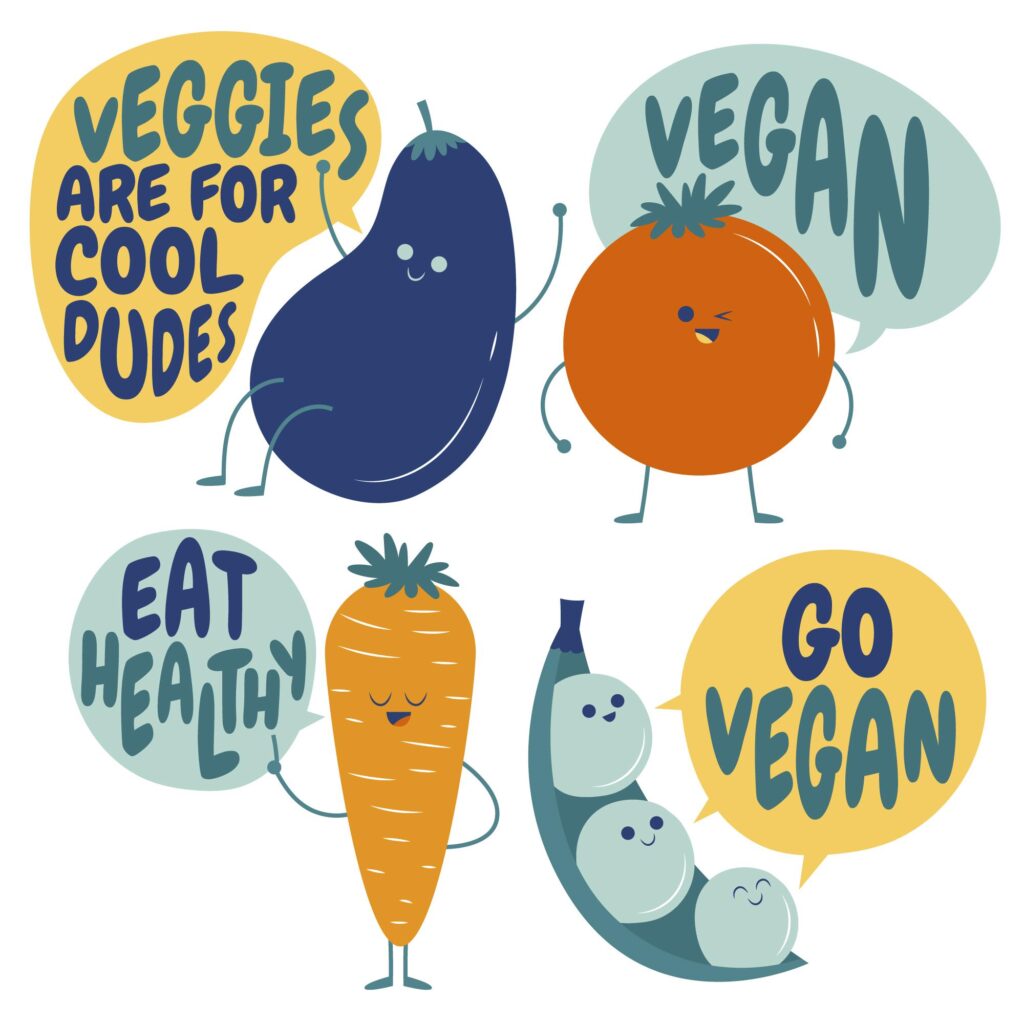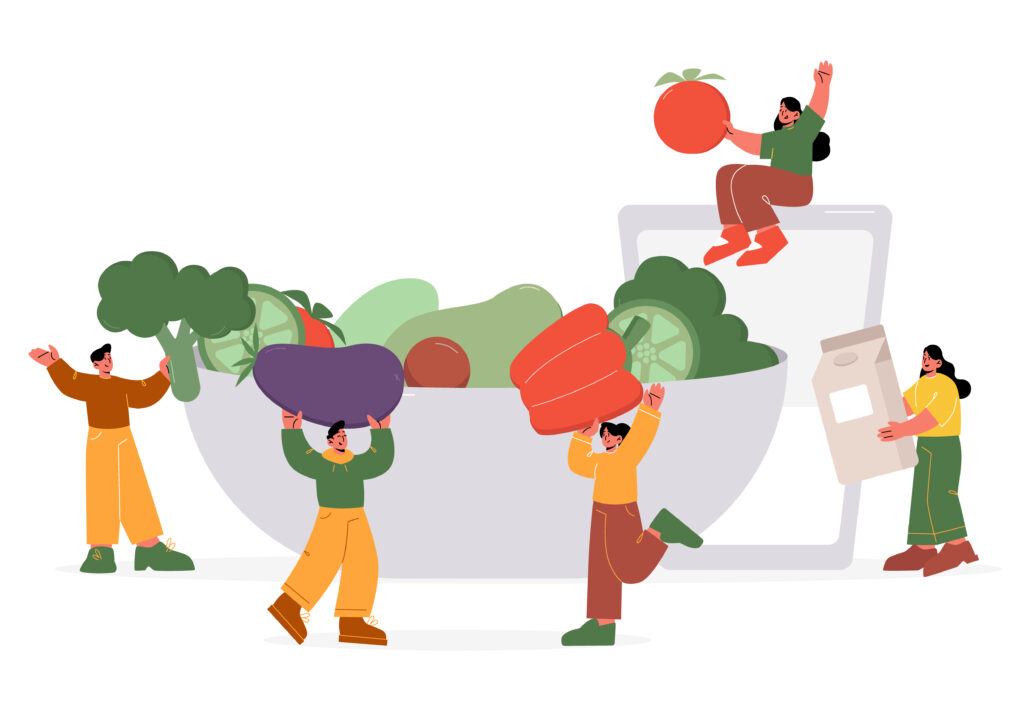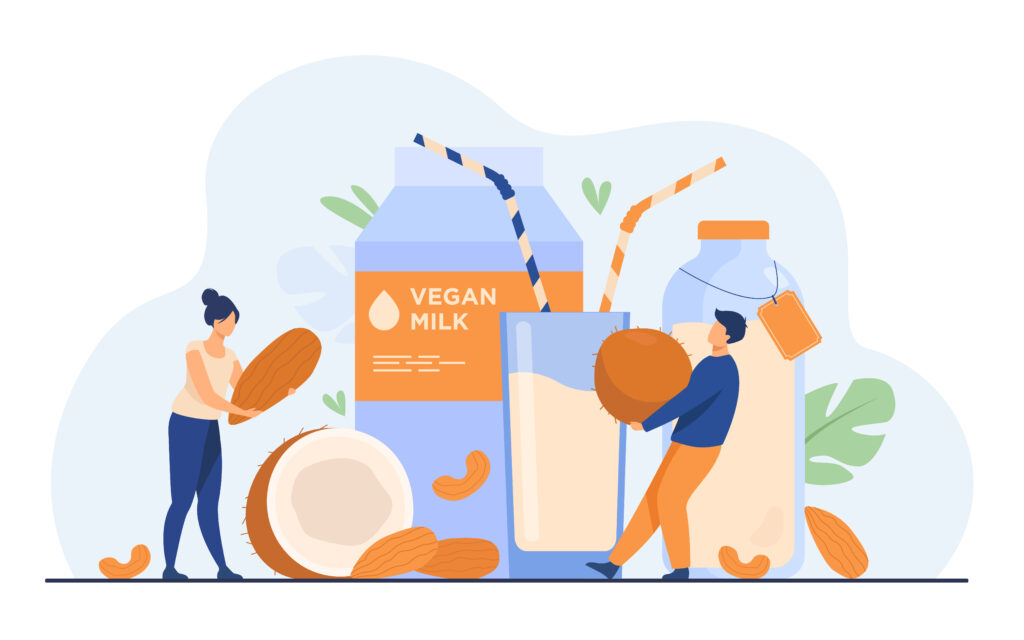Last updated on December 20th, 2024 at 02:10 pm
When entering a relationship with someone who has a different dietary lifestyle, it is essential to approach the situation with an open mind and a willingness to learn. Veganism, in particular, can become a point of contention if one partner is vegan and the other is not. However, by understanding and respecting each other’s choices, a vegan and a non-vegan can maintain a healthy and fulfilling relationship.
Definition of veganism: Veganism is a dietary and lifestyle choice that entails refraining from the use of animals and animal products for food, clothing, or any other purpose. This includes avoiding meat, dairy, eggs, and honey, as well as products that have been tested on animals or contain ingredients derived from animals.
Importance of Understanding and Respecting a Partner’s Dietary Choices
Understanding and respecting your partner’s dietary choices is essential, regardless of whether you agree with them or share the same lifestyle. A vegan diet is often based on ethical or moral beliefs, so it’s crucial to acknowledge and honor the reasons behind your partner’s decision to adopt a vegan lifestyle.
Tips for Navigating a Vegan Diet as a Non-Vegan Partner
If you are in a relationship with a vegan, it is natural to want to support and accommodate their dietary needs. Here are some tips for navigating a vegan diet as a non-vegan partner:
Research and Educate Yourself About Veganism

The more you understand veganism, the better prepared you’ll be to support your partner’s choices. This may involve researching the reasons behind veganism, learning about the environmental and health benefits of a plant-based diet, and becoming familiar with vegan alternatives to common animal-based products.
Be open to exploring new foods and recipes
One of the best ways to support your partner’s vegan diet is to be open to trying new foods and recipes. This can be a wonderful opportunity to broaden your culinary horizons and discover new plant-based dishes that you can both enjoy.
Assist your partner in discovering and preparing meals they will love
Depending on your partner’s comfort level in the kitchen, you may be able to assist with meal planning and preparation. This can include finding vegan-friendly recipes, grocery shopping for vegan ingredients, and helping to prepare meals.
Be understanding and flexible when dining out or attending events
Sticking to a vegan diet can be more challenging when dining out or attending events, where options may be limited. Be understanding if your partner needs to make special requests or bring their own food, and try to find dining or event options that accommodate their dietary needs.
Consider adding more plant-based options to your diet
While you don’t have to fully adopt a vegan diet, incorporating more plant-based options into your meals can demonstrate your support for your partner’s lifestyle and make meal planning and preparation easier for both of you.
Do not hesitate to ask questions or voice concerns
If you’re uncertain about anything related to your partner’s veganism, don’t hesitate to ask questions. It’s better to inquire and learn than to make assumptions or unintentionally cause offense. Likewise, if you have concerns about your partner’s diet or the potential challenges of dating a vegan, it’s essential to express these openly and honestly. By communicating in this manner, you can gain a better understanding of each other’s perspectives and collaborate to find solutions.
Communication and Compromise
Effective communication and a willingness to compromise are essential in any relationship, particularly when navigating differences in dietary lifestyles. Here are some ways to address potential challenges and find common ground:
Discuss your partner’s reasons for being vegan and how it aligns with their overall lifestyle
Having an open and honest conversation about your partner’s reasons for being vegan, as well as how their dietary choices align with their overall lifestyle, can be beneficial. This dialogue can enhance your understanding of their perspective and may reveal any potential challenges or areas for compromise.
Identify potential challenges or areas for compromise in advance
By addressing potential challenges and areas for compromise upfront, you can collaborate to create a plan for tackling them. This may include locating vegan-friendly restaurants for dining out, planning meals in advance, or identifying alternative solutions for social events or holidays where food is a primary focus.
Respect your partner’s dietary choices and boundaries

It is essential to respect your partner’s choice to follow a vegan diet, even if you do not share the same lifestyle. Avoid pressuring your partner to compromise their beliefs or choices, and be understanding if they need to make special requests or bring their own food in specific situations.
Celebrating and Supporting Your Vegan Partner
Alongside managing the practical aspects of a vegan diet, it is also essential to discover ways to celebrate and support your partner’s veganism. Here are some ideas:
Demonstrate to your partner that you respect and support their choices, even if you do not share the same dietary lifestyle
Even if you don’t completely understand or agree with your partner’s veganism, it’s essential to demonstrate that you respect and support their choices. This may involve making an effort to find vegan options when dining out or simply listening and being supportive when they discuss their beliefs and experiences.
Conclusion
Dating a vegan doesn’t have to be challenging. Through communication, compromise, and support, both a vegan and a non-vegan can coexist happily and respect each other’s choices. By educating yourself about veganism and being open to trying new foods and experiences, you can enhance your relationship and better understand and support your partner’s lifestyle.


